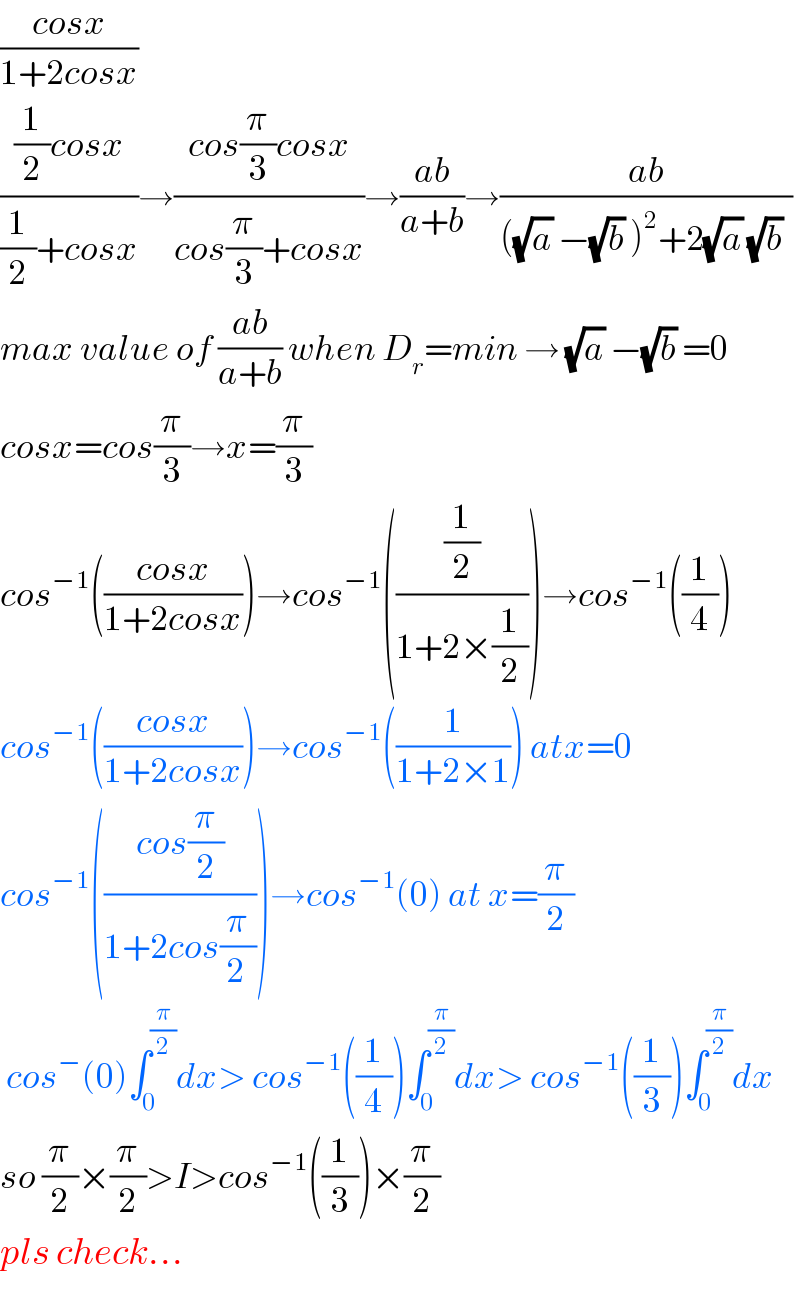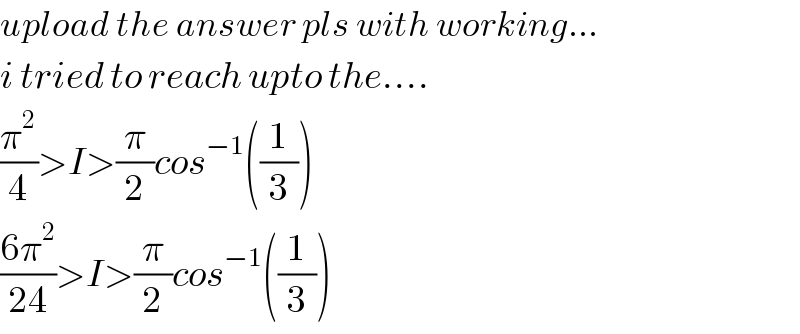
Question and Answers Forum
Question Number 54856 by Meritguide1234 last updated on 13/Feb/19

Commented by Meritguide1234 last updated on 14/Feb/19

Commented by Meritguide1234 last updated on 14/Feb/19

Answered by tanmay.chaudhury50@gmail.com last updated on 13/Feb/19

Commented by Meritguide1234 last updated on 13/Feb/19

Commented by tanmay.chaudhury50@gmail.com last updated on 14/Feb/19

Commented by tanmay.chaudhury50@gmail.com last updated on 14/Feb/19

